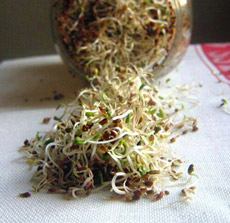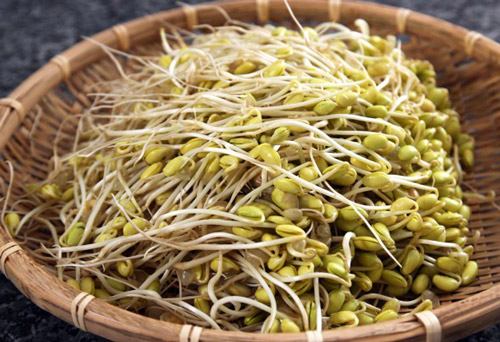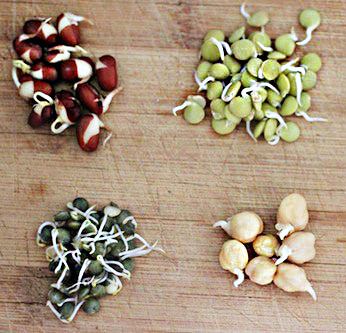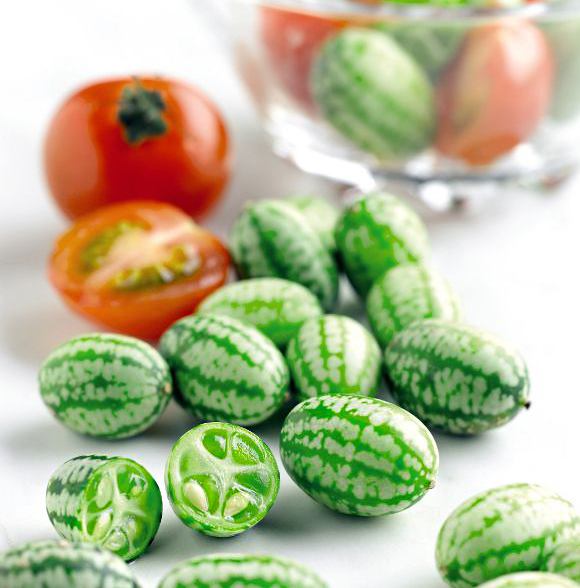Sprouted seeds are one of the best foods you can grow on your windowsill. Sprouts can be grown from most edible seeds; it’s very easy and affordable. Not to mention, sprouts are incredibly tasty, with each seed offering a unique flavor and texture.
10 Reasons to Grow Sprouts at Home
Sprouts contain up to 40 times more enzymes than vegetables. Enzymes, or ferments, are protein molecules involved in all biochemical reactions in living organisms and regulate metabolism. Thanks to the abundance of enzymes in sprouts, we absorb significantly more vitamins, minerals, essential fatty acids, and amino acids from food. All processes in our body become more efficient due to the enzymes in sprouted seeds.
Plant-based protein in sprouts is of higher quality compared to grains and seeds. The sprouting of beans, nuts, grains, and seeds improves protein quality through soaking and the biological processes of germination. As a result, its nutritional value and digestibility increase. Additionally, sprouting significantly raises the amount of amino acids responsible for the growth of white blood cells and fighting the herpes virus. Digesting plant-based protein requires minimal resources like calcium and magnesium.
Fiber content in sprouts increases significantly compared to grains and beans. Plant fibers bind toxins and fats, removing them from the intestines. Thanks to fiber, fat doesn’t have time to be absorbed and is expelled from the body. Only by consuming enough fiber can we control our weight and avoid gastrointestinal motility problems.

The vitamin content in sprouts is significantly higher. Just 2-3 days of germination can increase the vitamin content in grains by 20 times. This is especially true for vitamins A, B group, C, and E. For example, in soybean sprouts, vitamin B1 increases by 285%, B2 by up to 515%, and niacin (nicotinic acid) by up to 256%.
Sprouts have maximum levels of polyunsaturated fatty acids. Sprouts can be a primary source of fatty acids, along with fish oil and flaxseed oil.
Minerals in sprouts become more bioavailable. Calcium, magnesium, potassium, and phosphorus are absorbed more efficiently as they bind to plant-based protein.
Growing sprouts at home ensures their ecological purity and helps preserve the environment. We don’t use pesticides or nitrates at home, so we can be confident in the organic quality of the sprouts. All you need is to choose a good supplier of seeds and legumes.
Sprouts reduce the overall acidity of the body. We consume many products that increase blood acidity—cheese, meat, milk, salt. This disrupts the body’s acid-alkaline balance, leading to serious consequences, including an increased risk of cancer. Vegetables and fruits alkalize the body, reducing acidity. This process also strengthens our bones and joints and boosts muscle tone.
Sprouts are available all year round. Growing sprouts in our climate can become a key source of greens during the winter months when we are especially vulnerable—gaining weight, needing chlorophyll, and requiring additional doses of vitamins. All you need to grow sprouts is water, a container, and a dark place in your home, such as a kitchen cabinet or pantry.
Sprouting can become a very beneficial hobby. It’s simple to do, and you’ll see results in just 2-3 days. You can witness the magic of nature firsthand and then consume its living, potent energy. The awakening of a sprout demands incredible energy, which is concentrated in the plant during the first five days. “Mature” vegetables and fruits no longer possess such extraordinary vitality.
If I’ve piqued your interest, in the next article I’ll discuss how and what you can sprout at home.




